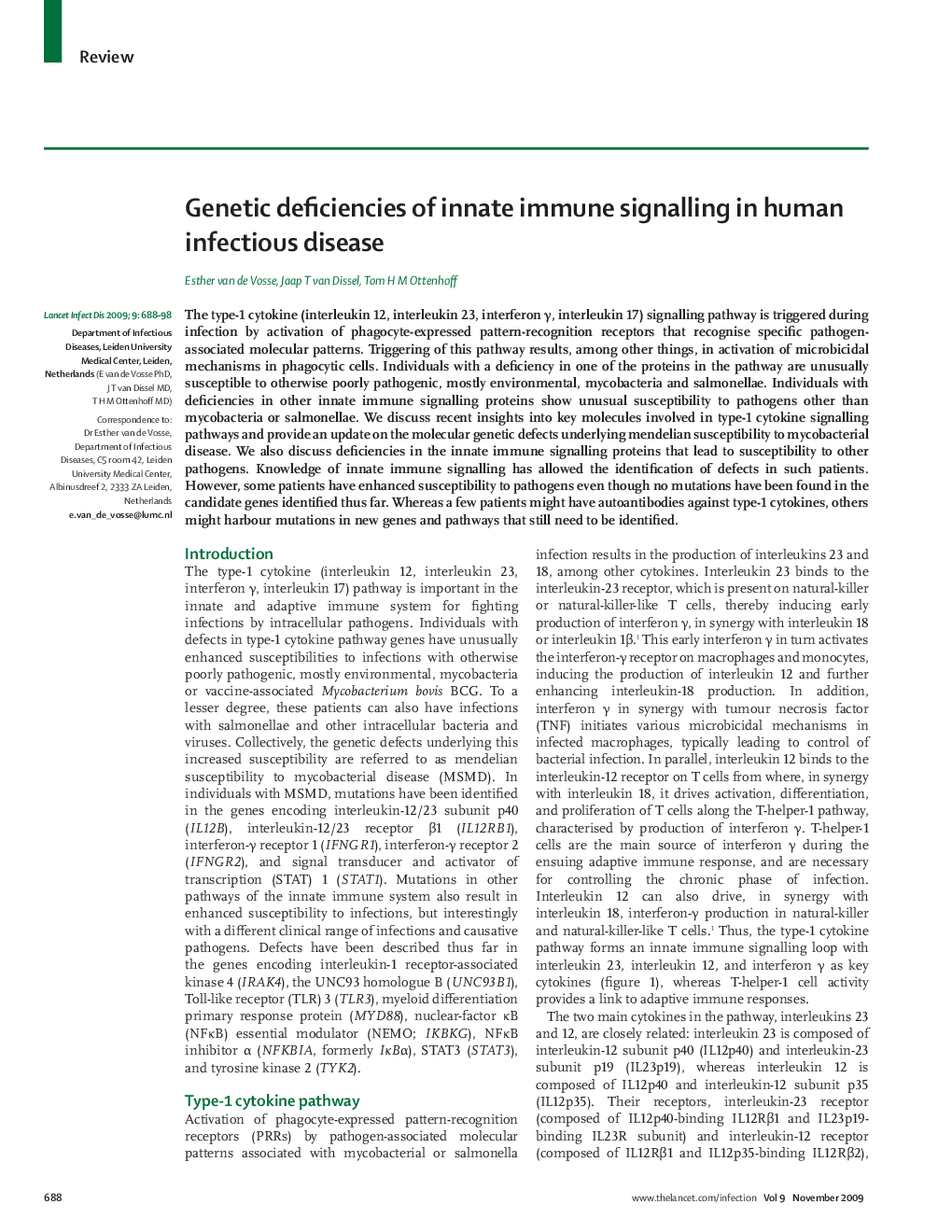| کد مقاله | کد نشریه | سال انتشار | مقاله انگلیسی | نسخه تمام متن |
|---|---|---|---|---|
| 3411549 | 1224139 | 2009 | 11 صفحه PDF | دانلود رایگان |

SummaryThe type-1 cytokine (interleukin 12, interleukin 23, interferon γ, interleukin 17) signalling pathway is triggered during infection by activation of phagocyte-expressed pattern-recognition receptors that recognise specific pathogen-associated molecular patterns. Triggering of this pathway results, among other things, in activation of microbicidal mechanisms in phagocytic cells. Individuals with a deficiency in one of the proteins in the pathway are unusually susceptible to otherwise poorly pathogenic, mostly environmental, mycobacteria and salmonellae. Individuals with deficiencies in other innate immune signalling proteins show unusual susceptibility to pathogens other than mycobacteria or salmonellae. We discuss recent insights into key molecules involved in type-1 cytokine signalling pathways and provide an update on the molecular genetic defects underlying mendelian susceptibility to mycobacterial disease. We also discuss deficiencies in the innate immune signalling proteins that lead to susceptibility to other pathogens. Knowledge of innate immune signalling has allowed the identification of defects in such patients. However, some patients have enhanced susceptibility to pathogens even though no mutations have been found in the candidate genes identified thus far. Whereas a few patients might have autoantibodies against type-1 cytokines, others might harbour mutations in new genes and pathways that still need to be identified.
Journal: - Volume 9, Issue 11, November 2009, Pages 688–698